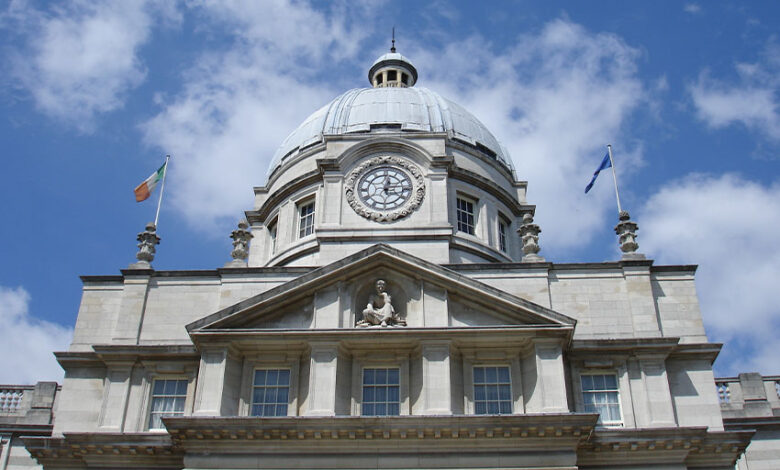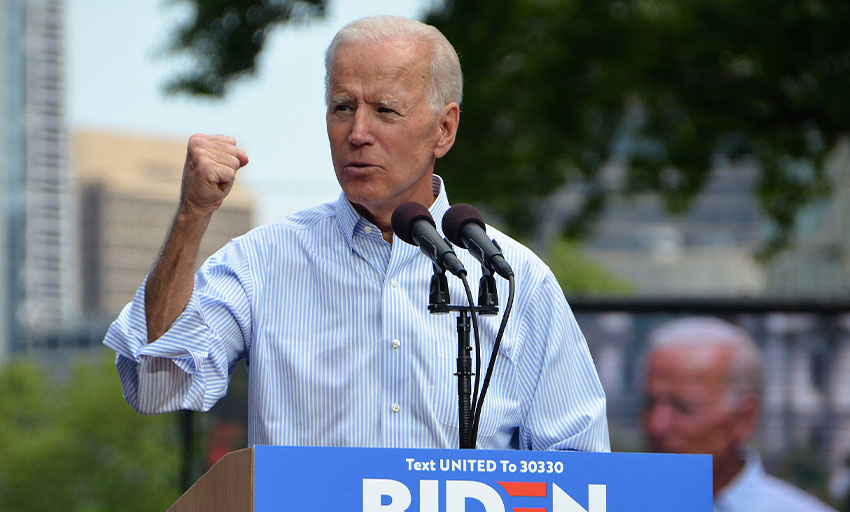2024: A year of elections

2024 is set to be a year of elections, with profound change to the political landscape of Ireland and some of its most important diplomatic allies a real possibility. eolas Magazine looks ahead to some of the polls to take place in 2024.
It is already confirmed that there will be elections held for local government and the European Parliament in the State in May and June 2024 respectively. It is also likely there will be a general election held in the autumn of 2024 or early spring 2025, with the Government’s term legally required to conclude by February 2025.
Fine Gael (through its preceding organisation, Cumann na nGaedheal) and Fianna Fáil have shared terms leading government since the State was founded more than 100 years ago, whilst Sinn Féin, the second oldest party on the island (after the Ulster Unionist Party) seemingly stands on the edge of ending its century in the wilderness of politics in the State.
If opinion polls are to be believed, the shift in Irish politics will be perhaps the most seismic since the historic 1918 election which culminated in the liberation of what became the State and the partition of the country. However, if the tide is turned and Fine Gael manages to find itself remaining in office, it will be the fourth consecutive term for the party in government, a feat which in spite of its prominence in Irish politics, was once unimaginable.

In the North, there is less certainty. The Executive Formation Act sets a legal deadline of January 2024 for the calling of an Assembly election by Secretary of State for Northern Ireland, Chris Heaton-Harris MP. However, previous ‘deadlines’ have been shifted to deal with the current stalemate at Stormont, and the formation of an Executive in the North will be a political development which will likely not end up requiring a new election.
It is nigh on certain that there will be a Westminster general election in which Sinn Féin and the DUP will once again battle it out to be the largest party in the North. The ‘remain swing’ which characterised the relative success of the Alliance Party and the SDLP in 2019 will face a significant challenge to avoid a complete return to the Sinn Féin-DUP dominant duopoly.
Around the world
Across the water in Britain, if polls are to believed, the Tories are likely to be removed from office for the first time since 2010, and a Labour government under Keir Starmer will be setting the agenda for relations between these islands.
US President Joe Biden was given a hero’s welcome when he ‘returned home’ to Ireland in April 2023, but he is currently struggling in his re-election bid against Republican Donald Trump, who is aiming to become the second US President to win a non-consecutive term, and the first since Grover Cleveland in 1892.
Trump, who is currently on trial on counts of civil fraud, theft of classified documents, and conspiracy to overturn the 2020 election, is as much as 10 per cent above Biden in the polling. Although in the United States polling tends to narrow closer to election day, Biden will face an uphill challenge, especially as independent Robert Kennedy Jr is polling the highest for any third-party candidate since Ross Perot in 1992.
In addition to the elections to the European Parliament, 2024 will also see elections being held throughout Europe, with the people of Croatia, Iceland, Finland, Slovakia, Lithuania, Georgia, Moldova, and Romania to elect their presidents, and new parliaments to be elected in Portugal, Belgium, Austria, Croatia, Georgia, Lithuania, North Macedonia, and Romania. With right-wing populism on the rise again through many EU member states, people in Ireland will observe these results with keen interest.
In Ukraine, Volodymyr Zelenskyy is scheduled to face re-election as president in April 2024, but as Ukraine continues to live under martial law amid Russia’s advancing invasion, it is extremely unlikely this poll will take place when scheduled.
In the East, as China looks on with interest on Russia’s progression in its invasion of Ukraine, it will be keenly following elections taking place in Taiwan, where the Democratic Progressive Party, which is opposed to the One China policy and supports the declaration of independence of a Taiwanese state, is likely to win a fourth consecutive term leading the presidency.
‘Elections’
In Russia, Vladimir Putin is up for ‘re-election’ on St Patrick’s Day 2024, having ‘won’ 77.5 per cent of the vote in the previous election in 2018. Since then, he has used his United Russia party’s manufactured supermajority in the State Duma to change the constitution of Russia which had previously imposed a limit of two consecutive terms on the Russian presidency.
In Belarus, there will be what is likely to be a similarly farcical election in April 2024 for the Belarussian House of Representatives, which is mostly made up of representatives of the pro-Alexander Lukashenko Belaya Rus party, along with the systemic opposition of the Communist Party of Belarus.
These efforts are mirrored in Azerbaijan, a burgeoning potential oil power which spans both Europe and Asia, whose dictator Ilham Aliyev will be seeking ‘re-election’ following his military’s successful expulsion of ethnic Armenians in the former breakaway republic of Nagorno-Karabakh in September 2023.
A changing landscape
Although polls tell a certain story of the likely changing political landscape to come, one can never be certain of polling translating to a result, or indeed the change to polling that can come in a general election campaign.
If the polls translate into results, as things stand, there will be a party in Ireland leading government which has never won power in the history of the State, and there will be a government in Britain which does not include the British Conservative Party for the first time in almost 15 years.
Significant political change may very well be coming to Ireland, Britain, and possibly the United States, meaning that 2024 could be, politically, a very significant year.





